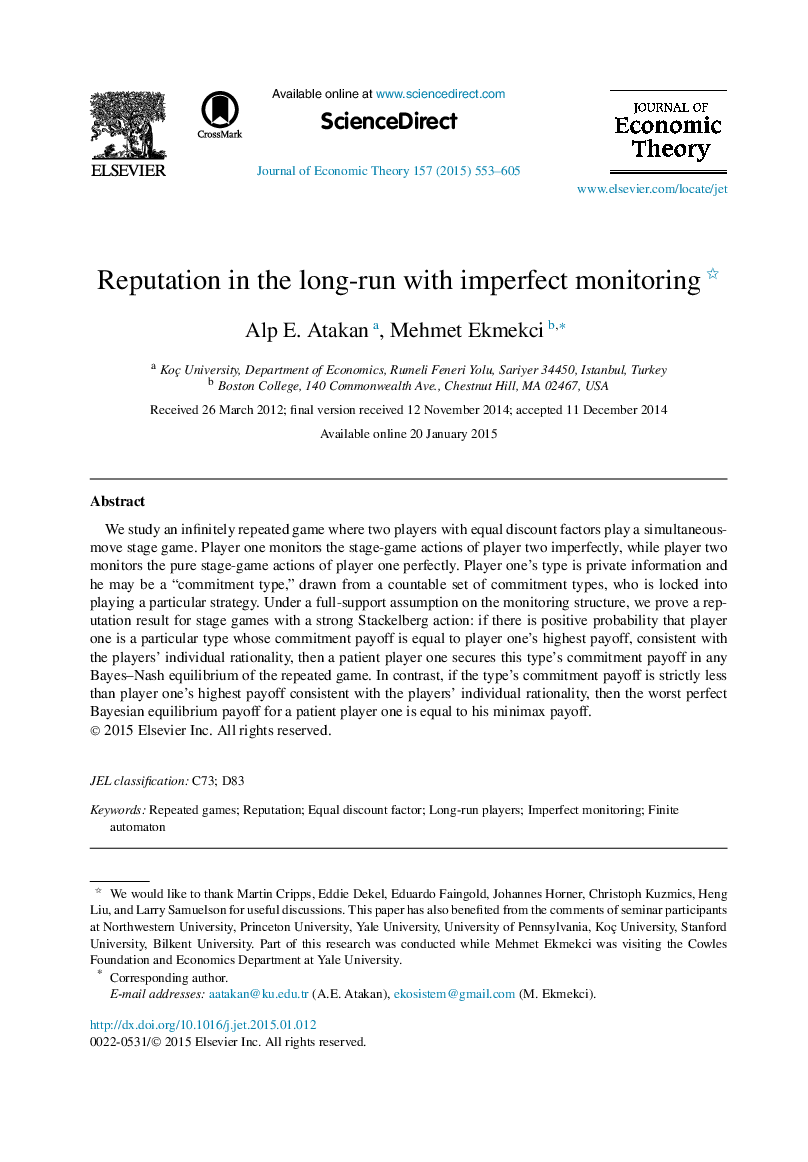| Article ID | Journal | Published Year | Pages | File Type |
|---|---|---|---|---|
| 7359734 | Journal of Economic Theory | 2015 | 53 Pages |
Abstract
We study an infinitely repeated game where two players with equal discount factors play a simultaneous-move stage game. Player one monitors the stage-game actions of player two imperfectly, while player two monitors the pure stage-game actions of player one perfectly. Player one's type is private information and he may be a “commitment type,” drawn from a countable set of commitment types, who is locked into playing a particular strategy. Under a full-support assumption on the monitoring structure, we prove a reputation result for stage games with a strong Stackelberg action: if there is positive probability that player one is a particular type whose commitment payoff is equal to player one's highest payoff, consistent with the players' individual rationality, then a patient player one secures this type's commitment payoff in any Bayes-Nash equilibrium of the repeated game. In contrast, if the type's commitment payoff is strictly less than player one's highest payoff consistent with the players' individual rationality, then the worst perfect Bayesian equilibrium payoff for a patient player one is equal to his minimax payoff.
Related Topics
Social Sciences and Humanities
Economics, Econometrics and Finance
Economics and Econometrics
Authors
Alp E. Atakan, Mehmet Ekmekci,
